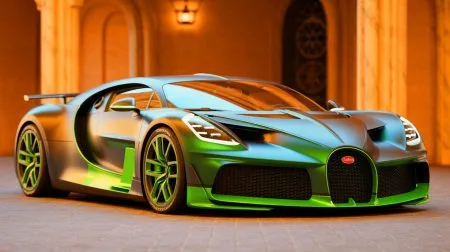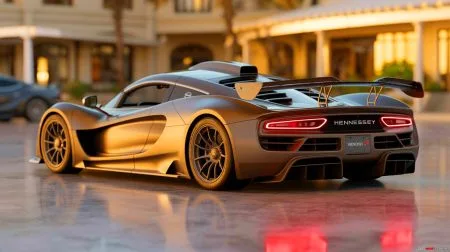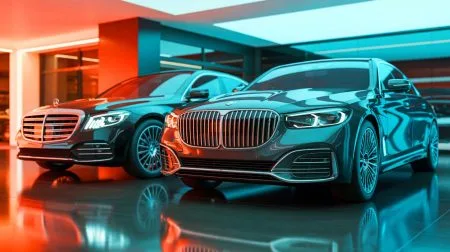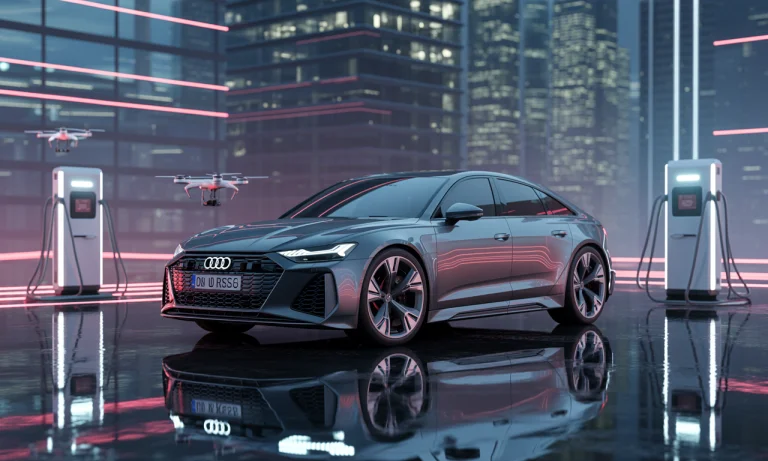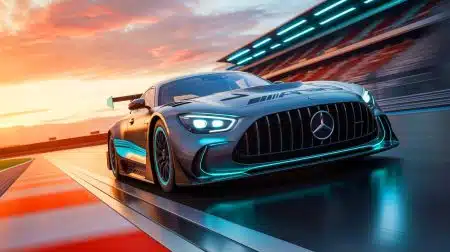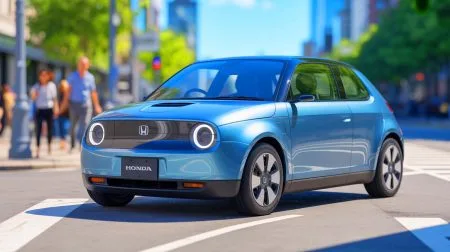It was supposed to be the defining moment for Audi’s performance legacy. Picture an RS6, electric at heart, storming the autobahn alongside icons from Tesla, Porsche, and Mercedes-Benz. Yet, in a climate where hope for electric cars once soared, reality caught up with the industry. The Audi RS6 E-Tron, eagerly anticipated by enthusiasts and rivals alike—BMW, Jaguar, Rivian, Lucid Motors, Ford, and Polestar—never crossed the finish line. Behind closed doors, shifting market winds and high-end buyer fatigue forced Audi to ground this futuristic wagon, leaving only rumors in its wake and a keen sense of what might have been. The premium automaker now faces a world divided—one foot in combustion, one toe in electrification—wondering if the dream was ahead of its time or simply misplaced.
Why the Electric RS6 Never Reached the Road: Market Realities and Industry Pressures
If you visit any Audi showroom—or glance at the portfolios of Tesla or Porsche—you’ll sense the tension electrifying the industry. The momentum around EVs, once feverish, has softened. Stories from Ford to Lucid Motors and Polestar echo the same refrain: electric dreams on ice. Luxury automakers are feeling the chill even harder; Pagani, Ferrari, and Koenigsegg have all put their EV plans on pause. Not long ago, the RS6 E-Tron seemed inevitable. Spy shots, tabled performance figures, and competitor benchmarking created a sense that Audi could leap ahead, but the ground shifted beneath their feet as demand for exclusive, high-powered EVs dried up. Even cars like the Hyundai Ioniq 5 N, with its democratized performance, sapped the unique appeal once held by electric flagships. In the end, a project that looked unstoppable on paper became another casualty as Audi, like Mercedes-Benz and BMW, reevaluated what the market really craved.
| Brand | Notable Performance EV | Status in 2025 | Key Rivals |
|---|---|---|---|
| Audi | RS6 E-Tron (canceled), RS E-Tron GT | Pivoting, reassessing lineup | Tesla, Porsche, Mercedes-Benz |
| Porsche | Taycan Turbo S, Macan EV | Ongoing, with strong demand | Audi, Tesla, BMW |
| Tesla | Model S Plaid | Reigning in performances, exploring new tech | Lucid Motors, Porsche, Mercedes-Benz |
| Rivian | R1T, R1S Performance Editions | Niche appeal | Ford, Polestar, Jaguar |
Changing Tastes: The Decline of High-Performance EV Exclusivity
What stunned Audi strategists—and puzzled the broader auto world—was how quickly the market cooled on extreme EVs. Once, high price tags and bleeding-edge specs meant cachet and exclusivity. Now, anyone could dial up ludicrous speed in a mainstream electric—no need for an RS badge or six-figure price. Stories even emerged of Ferrari reconsidering its second EV, and whispers that Lamborghini’s first electric might be stillborn. Audi faced a simple but stark question: was there any sense in adding a performance EV wagon to a space already teeming with muscle from Tesla and Porsche?
Cut to the present, and only the RS E-Tron GT remains—a superfast grand tourer that meets daily needs, but whose niche may be shrinking as well. The lesson? The badge isn’t enough and power alone no longer makes a car special.
What Comes Next for Audi RS6: Combustion, Hybrids, and the Shifting Legacy
Despite all the fanfare for electrification, the RS6 story continues—just not in the way purists expected. At Audi, designers shifted gears: the next RS6 may be powered by a downsized, electrified combustion engine, with just six cylinders and some hybrid magic instead of a full-electric heart. Sources inside Audi, echoing moves by BMW and Mercedes-Benz, suggest this new generation won’t match the raw figures boasted by the RS E-Tron GT, but it’ll carve out its own niche. For those still chasing driving feel, noise, and tradition, this RS6 could be the last best hope in a world rapidly embracing silent, software-heavy machines from Tesla, Polestar, and Rivian.
| Model | Expected Powertrain | 0-60 mph (Est.) | Electric Range/Assist |
|---|---|---|---|
| RS6 (2026, ICE/Hybrid) | Hybrid V6 or V8 | ~3.5 sec | Short electric range, performance boost |
| RS E-Tron GT (2025) | Dual electric motors | 2.4 sec | All-electric, 250+ mi range |
Lessons from a Shelved Dream: The Future of Performance at Audi and Beyond
Audi’s pivot resonates across the industry. Every major automaker—BMW balancing combustion and electrification, Jaguar redefining luxury, Ford doubling down on practical EVs, Lucid Motors chasing efficiency—now thinks harder about what drivers truly want. The RS6 E-Tron’s absence is a reminder: dreams are powerful, but timing and market reality dictate which come to life. For now, Audi fans must find excitement in hybrid innovations and refined combustion, while high-performance EVs, once thought to be the new supercar norm, return to a place of careful, measured evolution. The conversation continues among car enthusiasts and manufacturers alike, with each unveiling, rumor, and prototype sparking new debates on the true heart of performance driving.
In the shadows of what could have been, the future of wagons, sedans, and electrified legends remains up for grabs. Will Audi double down on tradition, or find a new way to electrify passion? The only guarantee is that the dream rides on, even if the destination looks different from what was once imagined.
Frequently Asked Questions about the Audi RS6 E-Tron and Future Performance EVs
Why was the Audi RS6 E-Tron cancelled despite early excitement?
Despite initial anticipation and development, the RS6 E-Tron was shelved due to insufficient demand for high-performance electric wagons. Market trends showed that buyers preferred either conventional performance models or mainstream EVs, diminishing the case for niche electric superwagons.
Will Audi still offer performance EVs in the future?
Audi continues to develop performance EVs on platforms like PPE, as seen with the RS E-Tron GT. However, the focus may shift towards diversified offerings rather than niche, ultra-high-performance models.
How do market dynamics for performance EVs compare among luxury brands?
Leading brands like Tesla, Porsche, and Mercedes-Benz still find strong markets for flagship EVs, while others like Jaguar, Lucid Motors, Ford, and Rivian concentrate on core models. Many luxury marques are now cautious, following the dip in exclusive high-performance EV demand.
What alternative powertrains might the next Audi RS6 use?
Audi is exploring hybrid and electrified combustion powertrains, likely with advanced V6 or hybrid V8 setups. These choices aim to balance environmental pressure with customer desire for performance and character.
Is the RS E-Tron GT affected by the RS6 E-Tron project’s cancellation?
No, the RS E-Tron GT remains in Audi’s lineup as their halo electric performance car, representing ongoing commitment to EV technology while serving a slightly different market than the RS6 would have addressed.
Did you like it? 4.6/5 (25)
